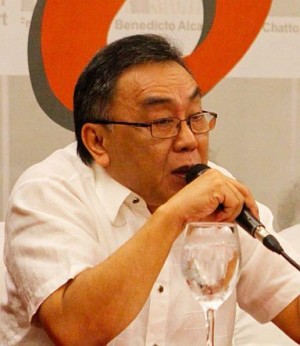
ESCALONA
Optimistic exec: GSP+, gift given to PH without any political influence
Local exporters remain optimistic that trade relations between the Philippines and Europe will continue to flourish.
According to PhilExport Cebu executive director Federico Escalona, they do not expect European lawmakers to take away the Generalized System of Preference Plus (GSP+), a perk that allows the Philippines to export more than 6,000 products to the European Union (EU) at zero tariff.
“If they will take that away, which I don’t think they will, it can of course be a very negative influence on the rise of our exports to Europe,” he told Cebu Daily News.
European lawmakers are set to discuss the merits of EU’s preferential trade arrangement with the Philippines on February 20.
In an Inquirer report, EU Ambassador to the Philippines Franz Jessen said the European Parliament would discuss the latest report on the country’s commitments under GSP+ which has been going on for the past three years.
The move came amid continued animosity by President Rodrigo Duterte towards the EU.
The Philippines earlier rejected a P382.8-million project on trade assistance from the EU, a union of 27 member-states.
Growth
According to Escalona, exports from Central Visayas to the European market have seen a huge growth since the GSP+ was implemented in late 2015.
Back then, Escalona said the European market only accounts to between 3 to 5 percent of the total exports market in Region 7.
Now, he said the EU is accounting to 15 to 20 percent of the total exporting market of Central Visayas. Although the US and Japan continues to be the region’s top exporting markets, closely followed by China, Escalona said the European market still holds a significant share.
“The political side of things is the refusal (of the Philippine government) of their offer to us. But that is political. The GSP+ is related to trade which has nothing to do with the political situation of this country. I honestly do not see that they (EU) will take this back,” Escalona said.
“I don’t think that we should be worried. I think that the GSP+ was a gift given to us without any political influence. We can see that its impact is very positive,” he added.
For now, electronics is the only product being exported from Central Visayas to the European market which is very strict in terms of quality.
Robust
The Department of Trade and Industry (DTI) earlier reported that trade relations between the Philippines and the EU continued to improve as they hit 31 percent growth of export products.
This is equivalent to EUR 2 billion worth of PH products being exported to the EU through the GSP+.
In an earlier Inquirer report, Trade Secretary Ramon Lopez said the GSP+ trade preference has benefited several communities in the country and opened opportunities for micro, small, medium enterprises (MSMEs).
The 31 percent total PH exports to EU amounted to USD 8.4 billion, making the EU the third largest export partner of the Philippines.
In the EU Trade Preferences Monitoring Report released last month, the robust trade between PH and EU was highlighted with EUR 2 billion worth of PH exports in 2017.
This is higher than the EUR 1.66 billion in 2016.
Electronics
Meanwhile, the Semiconductor and Electronics Industries in the Philippines Foundation Inc. (SEIPI) has reported that electronics export has reached an all-time high of $32.7 billion in 2017.
This corresponds to an 11-percent growth from the industry’s exports in 2016.
In an Inquirer report, SEIPI President Danilo Lachica said this was a significant milestone since it is the highest level of exports achieved since the beginning of the electronics industry, which usually accounts for at least half of total outbound goods of the country.
The previous record was in 2010 when electronics export registered at $31 billion.
In Central Visayas, electronics also remains as the top export product of the region.
Export earnings
According to National Economic Development Authority (Neda) 7 Regional Director Efren Carreon, export earnings in Central Visayas for the first semester of 2017 increased by 30.2 percent.
While electronics continues to be the top export product, other non-electronic products have been picking up recently.
“In 2017, eight of the region’s top 10 exports were non-electronic products which include woodcraft furniture and processed food and beverages. This is good especially for the raw material producers in the region and nearby provinces,” Carreon said.
For this year, Carreon said they expect to see positive performance in the export industry of the region with the increase of non-electronic products in the region’s exports.